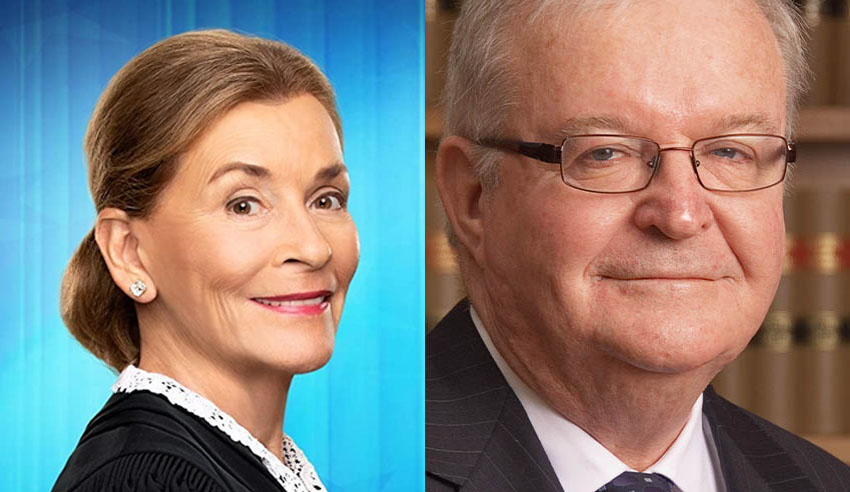The more infamous an individual Australian judge is for their misdeeds, the more compromised the judiciary, said NSW Chief Justice Tom Bathurst, who suggested that each and every judge needs to consider why trust in the judiciary has been deteriorating so quickly and what needs to be done to repair it before it’s too late.

According to the Chief Justice Tom Bathurst, public awareness of judges falls into three categories: the “celebrity judge from overseas”, judges caught up in the fallout from misdeeds and the others that are hidden by anonymity. No matter the good of most, the poor behaviour of some receives the kind of attention that deteriorates trust in all judges.
“Such transgressions erode trust by those directly impacted. However, they also pollute trust more broadly,” CJ Bathurst said. “The public will never hear about the vast majority of well-behaving judges but will almost certainly hear of the rare judge that does not live up to community standards. It has been stated that bad judges, however few there may be, will always be a stain on public perception of justice.”
This was never made more clear than when the Honourable Chief Justice Susan Kiefel AC confirmed an inquiry had found former High Court justice Dyson Heydon had sexually harassed six young associates. The legal profession immediately committed to rebuilding the trust in the judiciary with new policies and a promise that an Independent Commission would be established to hold judges to account.
In the same speech, CJ Bathurst said that mistrust in judges can also be attributed to sexual harassment and bullying: “These behaviours disempower, exclude and silence victims from their rightful place in the law. This undoubtedly builds deep mistrust in the legal profession and the judiciary in turn.”
The Chief Justice added that the rule of law exists and is premised on judges being of good character in order to preserve judicial legitimacy. In other words, the integrity of the judiciary as an institution hinges on the integrity of “each and every judge” and how they use their “immense power” both on and off the bench.
“When trust in an individual is compromised, so too is trust in the institution. Trust will only be maintained if judges maintain the highest standards of integrity in their profession, public and private lives,” the Chief Justice told the audience of judges.
“It is not enough that judges uphold such standards on the bench; they must also demonstrate integrity off the bench. From the perspective of a member of the public, it is difficult to dissociate the law from the judges who declare and apply it.”
CJ Bathurst said the judiciary would be naive to think that every member of the community trusts that they “do right by them”. He said it is well documented that minority groups are much less trusting of courts and that those who are most trustful are “male, younger and resided in metropolitan areas”, which can explained by the fact that erosion of trust is “intimately connected with systems of power and control”.
He said that given the historical “disenfranchisement, oppression and exclusion” of Aboriginal and Torres Strait Islander peoples by the justice system, it is also understandable that the judiciary is not viewed as favourably as other groups.
“In my opinion, it is deeply concerning when different community groups have different levels of trust in the courts. The judiciary serves each and every member of the community. Not merely the ones living in cities or those taught from a young age that judges will protect them and their communities or those who speak English as their first language. All members of the community should feel they can trust,” he said.
On how the judiciary can strive to “build and rebuild” trust by the public – and especially with the communities that have had poor relations with the justice system – CJ Bathurst suggested to first consider doing it “incrementally and consistently” by demonstrating that the judiciary “does in fact serve all” who come before it.
“We do this when we provide culturally sensitive services that recognise the ongoing impacts of colonisation in Australia. There is an ongoing need for culturally competent, community-controlled services engaging with Aboriginal and Torres Strait Islander People to bridge this distrust,” CJ Bathurst said.
“In light of the centuries of injustice inflicted by our justice system towards Australia’s First Nations Peoples, it will understandably take a long time to earn back trust of Aboriginal and Torres Strait Islander peoples. We must strengthen trust, bit by bit.”
Secondly, CJ Bathurst said there need to be improvements in the diversity of the judiciary and challenging of the perception that the judiciary does not serve the interests of all. When the judiciary is perceived as homogenous, “it is harder for the public to trust its impartiality” in their decisions, the Chief Justice said.
“People are more likely to trust in the judiciary when, and to the extent, they believe that judges represent social groups to which they belong. If a community cannot look at their judges and see men and women they identify with, their trust in the ability of the justice system to do right by them may be compromised,” CJ Bathurst said.
